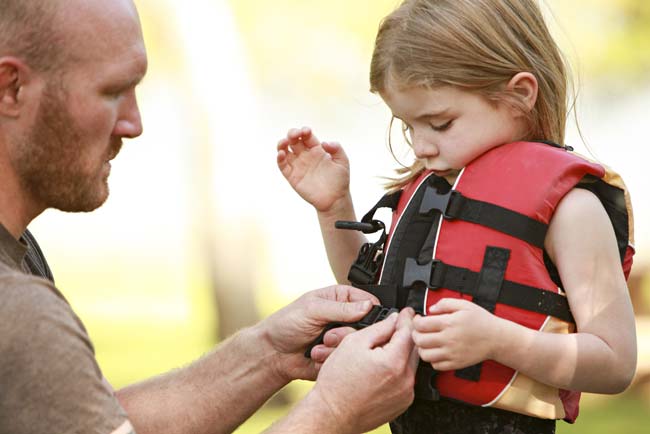We get it: The hot temperatures and beautiful weather make it tempting to hit the open waters! But before you do, take a few minutes for a refresher on boating safety.
Following safety best practices out on the boat is extremely important.
Unfortunately, Tennessee doesn’t have the best track record. In 2016, Tennessee ranked 10th in the nation for the number of boating accidents. That year, there were 116 recorded boating accidents on Tennessee waterways.
Let’s take a look at some basic boating safety guidelines to know before you hit the water next time.
Boating safety tips
- Wear a life jacket. The majority of drowning cases occur because the victim was not wearing a life jacket. Each person on the boat should have a life jacket assigned to them before the boat heads out on the water. Choose a size- and age-appropriate jacket for each person.
- Learn how to swim. This one seems obvious, right? If you’re going to be out on the water, it’s important to know how to swim. So, teach children how to swim at the earliest possible age. Many local organizations offer swimming lessons for those of all ages and abilities.
- Keep an eye on the weather. Before you depart, check the local weather forecast. While out on the water, be observant. If clouds begin to darken, lightning is in the area, the temperature suddenly drops or the water becomes choppy, head for land.
- Don’t drink & drive. This principle for driving on land also applies to the water. Not only is it illegal, but driving a boat while intoxicated can be deadly. The likelihood of being in a boating accident doubles when alcohol is involved.
- Let someone know you’re headed out. Before going out on the water, inform someone on land that you’ll be boating — and when to expect your return. Also let the person know where you expect to go while on the water.
- Have two potential drivers on board. Best practice is to have at least two trained, licensed boat drivers on board. That way, if one of you becomes incapacitated in some way, there’s a second driver that can get you back to land.
- Do a thorough pre-trip check. Check to make sure all parts of the boat are in good working order and that you have necessary safety items on board before you head out on the water.
- Pack a first aid kit. Pack the basic items needed in the case of an injury, like bandages, gauze and antibacterial ointment, along with treatment for common illnesses like antacids and over-the-counter pain relievers.
Looking for other safety pointers beyond these basic tips? A boating safety course, like those required for a TWRA Boating Safety Education Certificate, is your best option!
Sometimes, despite our best intentions, emergencies occur. If an emergency situation with your child crops up on the water this summer, rest assured knowing that Children’s Hospital at Erlanger offers specialized emergency care for area kids.







